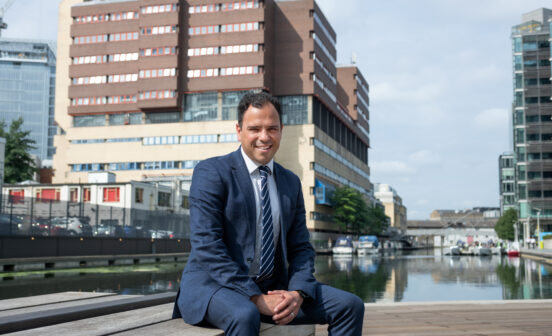Guideline Elongated use of mobile phone is not associated with the risk of brain tumours

A study results show using a mobile phone for extended periods is not linked with an increased risk of brain cancer. These are the findings from the COSMOS study, a large international project led by researchers at the Karolinska Institutet in Sweden and Imperial College London, including BRC-associated researcher Professor Paul Elliott.
At the start of 2007, researchers studied more than 250,000 mobile phone users to investigate if extensive use of mobile phones increases the risk of brain tumours over time.
The phone users answered detailed questions about their mobile phone use and were then followed in cancer registries to track the onset of any brain tumours.
The study, published in Environment International, found no link between mobile phone use and the risk of brain tumours.
The prevalence of brain tumours among the ten per cent of people who spent the most hours on a mobile phone did not differ significantly from those who used the mobile phone much less.
In addition, the researchers found that people who started using a mobile phone more than 15 years before answering the COSMOS questionnaire did not have a higher risk of developing the disease than those who had used a mobile phone for a shorter period.
Professor Elliott, Head of the Department of Epidemiology and Biostatistics at Imperial’s School of Public Health., who co-leads the international COSMOS study said: ”This is the world’s largest multinational long-term follow-up study specifically designed to investigate potential health risks of mobile phone use.
“We found no evidence that long-term or heavy mobile phone use is associated with the risk of common brain tumours. However, it is important that we continue to follow COSMOS participants and their development of rarer brain tumours and other health outcomes such as cardiovascular disease, birth outcomes and neurodegenerative diseases.”
Ongoing research
Professor Mireille Toledano, Director of the Mohn Centre for Children’s Health and Wellbeing at the School of Public Health and co-lead of the UK arm of the study, said: “These results for cancer outcomes are reassuring because today’s mobile phone use differs substantially from 20 years ago when we started our research.
“Generally, radiofrequency electromagnetic field exposure levels to the head during calls have decreased considerably with each new generation of mobile phone technology. In addition, people today spend far less time with their phone to their head and more time on video calls, social media, and surfing the internet.”
The researchers say the study will continue for several years, aiming to shed more light on possible risks.
Maria Feychting, Professor at Karolinska Institutet’s Institute of Environmental Medicine, who co-led the study, explained: “Mobile telephony technology is constantly changing, and some of the tumours we studied are very rare. We will continue to follow the COSMOS participants to be able to draw more reliable conclusions about possible risks in the long term.”
The UK arm of COSMOS was funded initially by Mobile Telecommunications and Health Research (MTHR), an independent programme of research into mobile phones and health jointly supported by the UK Department of Health and the mobile telecommunications industry, and subsequently by the UK Department of Health & Social Care via its Policy Research Programme, as well as by the National Institute for Health and Care Research’s Health Protection Research Unit on Chemical and Radiation Threats and Hazards.





